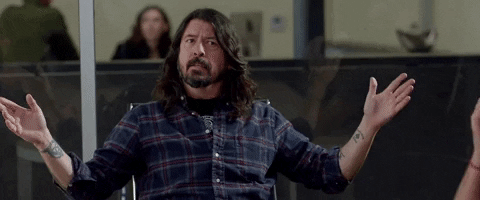The tricky thing about creative work is that the biggest task in it is managing yourself.
To be a professional creative of any kind that doesn’t regularly burn out, you have to get really good at treating yourself as a resource.
And a resource isn’t infinite.
You have to learn when you’re hungry or tired or need mental stimulation.
You have to learn kindness and grace towards yourself and not push when it’s the wrong time to do so.
I think it’s worth noting, the reason creative people are annoying to other people, there are several reasons, one of which is they’re procrastinators. They don’t start work straight away. There’s even an experiment John Cleese mentions about this, where the the least talented architects would all start drawing things up on day one, and the most talented architects would do nothing. They’d commit nothing to paper, perhaps other than doodles, and what they’re doing, because they’re creative, is they’re waiting to get lucky. They’re waiting to have inspiration.
— Rory Sutherland, All Things Business
Creatives are procrastinators.
We know that something that’s emotionally potent can come from very trivial things.
We’re not linear thinkers. We don’t focus on the outcome in a way that we want to come up with a right answer, get a tick and move on.
People who are like that find creatives maddening, because being a creative and going through the creative process is the inverse of what’s seen as productive of efficient.
During the past months, I’ve been really digging into my own ingrained habits and biases around productivity.
I think this process started somewhere around the time I was reminded of how much I hated The 4 Hour Work Week.
Since then, I’ve been observing myself, my own thoughts. And while it is challenging to see them as clouds in the sky and allow them to come and allow them to also go, I’ve managed to discern something critical.
My mental models around productivity were largely defined by the patriarchy and by the corporate machine always driving to make a profit. Probably, most of ours are.
And while you can get through life like that, it’s exhausting. And you never, ever feel truly fulfilled.
So, I’ve been working on dismantling my own outdated mental models, and the biggest challenge, without a doubt, has been realising how fucking deep the roots of it go. It’s like an onion, and I peel back layer after layer and still I find more toxic productivity mantras, like ghosts in the attic, unseen but still affecting my decisions.
I struggled for a long time with how to break free of these mental models and mantras when I found them, and one part of this equation is to create better mental models for yourself. But that’s a longer process that you build up over time.
In the immediate, I need immediate solutions that snap me out of it. And I’ve found some, still working on others.
The thing is that world is a data driven place.
And being data driven is great when you want to win an argument. You never get blamed, even if it’s a total disaster, when you can point to “the data told us to do so-and-so”.
But all big data comes from the same place: the past. And being overly reliant on data means being tied to the past.
The problem with this is that the past nor the data are necessarily representative of the future.
Data in a human context is also woefully misrepresentative of human behaviour. We aren’t numbers that fit neatly into Excel sheets.
The really important things are things that we can’t quantify and so those things don’t exist in the data.
So we cannot bypass a whole phase of inquiry and expect great results. Any desperation to automate things is a sign of a failure of imagination, of curiosity.
The most valuable part of any creative project is not the outcome itself.
It’s the insights that arise when you ask those difficult questions about what you need. Doing the thing is when you have to think a lot and you have to discipline and marshal your thoughts, immerse yourself in the subject.
It’s recursive and iterative and you double back on yourself — you have to go through the painful process to gain skill and wisdom (and I’m not just saying this because I’m in the midst of an excruciating process of editing myself).
To make everything automated and linear is a quest for morons.
Creativity is messy. It’s hard and exhausting at times. But it’s also exhilarating and so very valuable. It is worth your time, even if the outcome isn’t perfect.
Want to get more out of reading books?

Grab this FREE guide on how to start a reading journal, complete with review templates, reading trackers and bingo sheets.
Understand yourself better as a reader, engage more with the books you read & make space for creative self-expression. Get it now!





